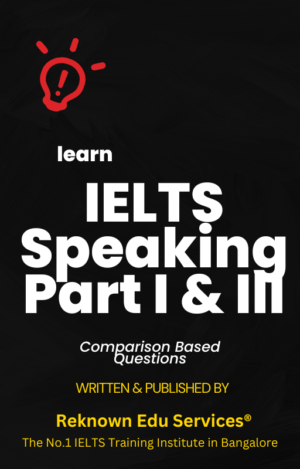Description
IELTS Speaking Part II – Narrative Based QNA (Made for 2025)
In IELTS Speaking Part II – you’ll encounter narrative-based questions that require you to share a personal story or experience. These questions aim to assess your ability to tell a coherent and engaging narrative, use appropriate vocabulary and grammar, and maintain fluency. For example, you may be asked to describe a memorable journey, including details about the destination, mode of transportation, and what made it memorable.
To excel in these questions, follow these steps:
- Plan your narrative, organizing the key details and events.
- Begin with a brief introduction, setting the context of your story.
- Present a structured account of the journey, using descriptive language and anecdotes.
- Connect different parts of the story using appropriate linking words.
- Speak confidently and maintain a natural pace.
- Conclude by summarizing the key points and expressing your overall impression.
Narrative-based questions are important in the IELTS exam as they test your ability to convey personal experiences effectively. Demonstrating good storytelling skills, using a range of vocabulary and grammar, and maintaining fluency are key to achieving a high score. For more tips and strategies, refer to reputable IELTS preparation resources like this.
IELTS Speaking Part II – Narrative Based Questions – Useful Linking words & phrases
- Firstly, secondly, thirdly, etc.
- In addition, furthermore, moreover
- However, nevertheless, on the other hand
- Therefore, thus, consequently
- In conclusion, to sum up, in summary
- Likewise, similarly, equally
- For instance, for example, such as
- As a result, due to, because of
- Despite, in spite of, although
- Meanwhile, meanwhile, during
- Otherwise, alternatively, on the contrary
- Not only…, but also…,
- On one hand, on the other hand
- According to, in accordance with
- Above all, chiefly, most importantly
Using these linking words and phrases can help create a logical flow in your answers and make them more cohesive and easier to follow. However, it’s important to use them appropriately and not overuse them. It’s also important to practice using them in a natural and fluent way.






Reviews
There are no reviews yet.